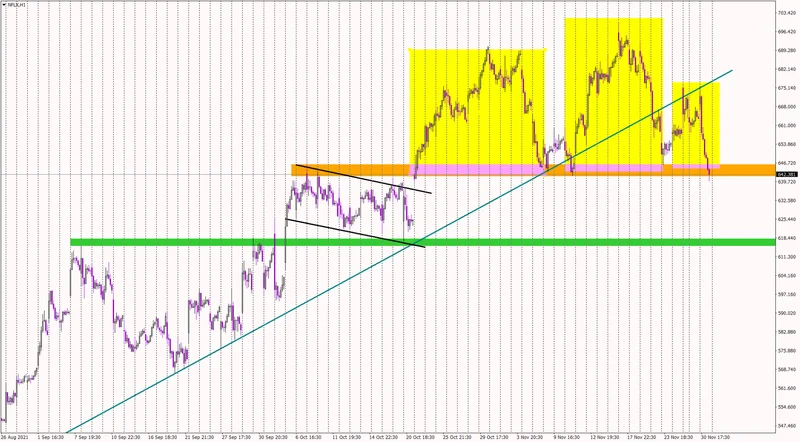So, Netflix stock took a 10% nosedive. The usual suspects on Wall Street are screaming, "Buy the dip! It's just business as usual!" while the rest of us are supposed to nod along like caffeinated bobbleheads.
Give me a break.
Every time a tech darling stumbles, an army of financial gurus materializes to tell you it's not a stumble at all—it's a "buying opportunity." It's a "market overreaction." It's a "misunderstanding." This time, the big excuse is a "controversial Brazilian tax bill." They want you to believe that a potential $619 million liability, which vaporized over $46 billion in market value, is just a little oopsie. A noncash accounting quirk.
This is the oldest trick in the book. It’s a classic sleight of hand. Look over here, at the shiny history of stock bounces! Don't look at the fact that a foreign government just sucker-punched a U.S. tech giant in a way that might have, you know, actual consequences. Are we really supposed to believe that this is a one-off? That this kind of regulatory risk won't pop up again in another country next quarter?
Let’s get this straight. The narrative is that this is just like the Qwikster fiasco or the 2022 subscriber panic. An overreaction. But this isn't about a boneheaded rebranding or a temporary slowdown in growth. This is about a sovereign nation's Supreme Court telling a multinational corporation to pay up.
The analysts say it’s fine because "no cash payments have been made yet." Right. And the hurricane is fine because it hasn't made landfall yet. This is just a bad excuse. No, "bad" doesn't cover it—this is a five-alarm dumpster fire of an explanation designed to calm the retail investors while the big fish reposition themselves.
They’re treating a $619 million problem like a rounding error. But for who? For the company that lost the equivalent of the entire market cap of Ford or Kraft Heinz in a day? It ain't a rounding error for the person whose 401k just took a hit. They want you to focus on the magician's puff of smoke, the dramatic drop, and the "historical data" that shows it always comes back. They don't want you looking at the magician's other hand, the one quietly rewriting the rules of the game in courtrooms around the world.

What other "noncash charges" are lurking on the balance sheets of these global behemoths? How many other tax battles are they fighting that we won’t hear about until they lose?
And this shell game isn't just for your investment portfolio. It’s for your entire digital life. While you’re distracted by the stock market circus, companies like NBCUniversal are running a much quieter, more insidious grift right on your screen. You’ve seen it. That little pop-up: the “Cookie Notice.”
It’s a masterpiece of corporate misdirection. A 2,000-word document written in pure, uncut legalese, designed to be scrolled past and accepted without a thought. They fill it with reassuring-sounding terms like "Personalization Cookies" and "Content Selection." It sounds so helpful, so bespoke. Like they're tailoring a fine suit just for you.
Offcourse, that’s a lie.
These cookies aren't for you. They’re for them. "Personalization" is just a friendly word for "digital surveillance." They watch what you click, how long you watch, what you pause, what you ignore. They build a profile on you so detailed it would make the Stasi blush. They do this to "select and deliver personalized content." Translation: to figure out the most effective way to sell you something you don't need or to shape your opinion on something you don't understand.
They even have "Social Media Cookies" that let platforms "track your online activity outside of the Services." So Facebook knows what shows you're watching on Peacock. Great. It reminds me of trying to cancel a gym membership; they make you fill out a form, mail it in, wait six weeks, and hope they don't "lose" the paperwork. The entire system is designed for you to just give up. And they know you will. They call it providing "choice," but really it's just a digital maze they know you won't bother to solve...
Then again, maybe I'm the crazy one here. Maybe everyone else is perfectly fine with being cataloged, categorized, and sold to the highest bidder. Maybe the illusion of control is enough.
At the end of the day, it's all the same game. Whether it’s Wall Street telling you a 10% stock plunge is a "gift" or a media conglomerate telling you that constant tracking is a "service," the goal is identical: to make you feel like you're in charge while they rig the system in their favor. They give you a mountain of useless data, confusing charts, and legal documents, all while whispering, "Trust us." And we do. We click "accept." We buy the dip. We play our part in a show where we are the only ones who don't know the ending.